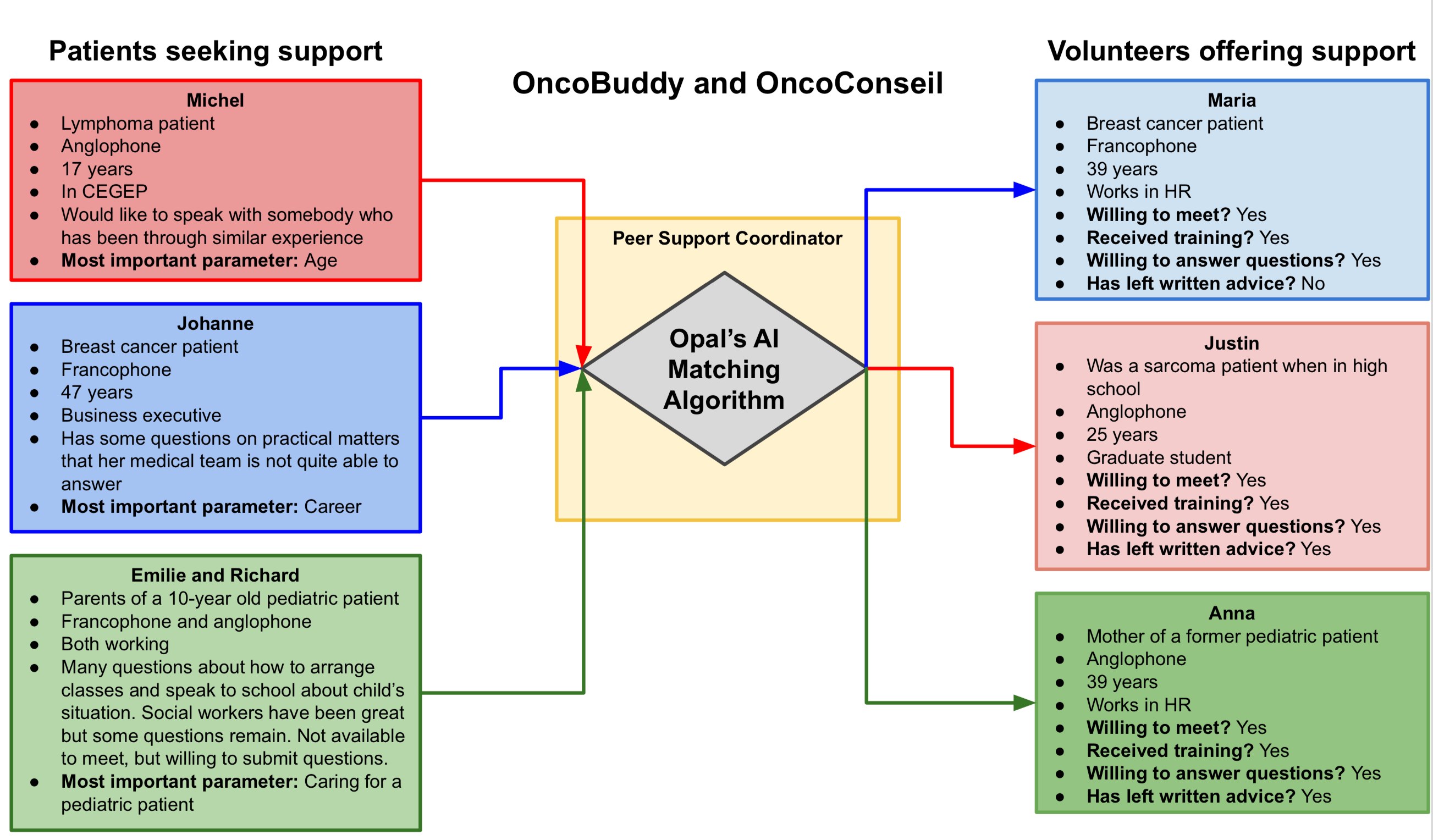Opal: Oncobuddy and OncoConseil
 |
|---|
| The OncoBuddy research team |
Overview
The cancer experience is anxiety-provoking. As well as worrying about their disease, cancer patients (and their informal caregivers) must navigate many medical, logistical, and psychosocial challenges. The uncertainty of which challenge will come next, and how, can be distressing.
But patients can help each other. One way in which cancer-related distress can be reduced is through peer support, in which a new cancer patient obtains some foresight through the hindsight of a previous patient. Therefore, in this research project, we are using a stakeholder co-design approach to develop and evaluate a novel, patient-suggested, artificial intelligence (AI) methodology to improve the availability and the effectiveness of peer support in Quebec using the Opal patient portal app. In doing so we are aiming to help meet the informational and self-management needs of current patients by harnessing the expertise of previous patients.
 |
|---|
| Overview of the OncoBuddy matching algorithm for patient-to-patient peer support |
Matching patients for peer support
This project is very cross-disciplinary. It has a strong psychosocial motivation and it is grounded in quantitative oncology data and AI principles. Given the data and preferences of a new patient, what is the most appropriate way to identify those previous patients that best match the preferences of the new patient? And, how can the matching algorithm continuously learn and improve itself?
The new dimension of psychosocial data to be collected from patients in this initiative will ultimately enrich the body of real-world data for real-world evidence research. For example, currently no data are collected in healthcare regarding patient lifestyles, religious preferences, and cultural preferences, all of which may ultimately impact cancer treatment outcome. By following the stakeholder co-design approach and using semi-structured patient interviews and qualitative content analysis, we are investigating the most appropriate parameters for patient matching.
 |
|---|
| Proof of concept tool to create fake patient data for testing matching algorithms |
Matching algorithms
The project is exploring several approaches for patient matching, including the stable mariage, hospital residence, stable roommate and genetic algorithms as well as recommendation systems such as nearest neighbors, relevance feedback, etc. Our work is guided by a stakeholder co-design committee of patients, clinicians, and researchers.
|  |
|